Stack of utensils crafted in India forms Cheese Maker by Studio Makkink & Bey
Milan 2014: Dutch designers Studio Makkink & Bey worked with craftspeople in India to create the elements in this totem, which all form part of the cheese making process (+ slideshow).
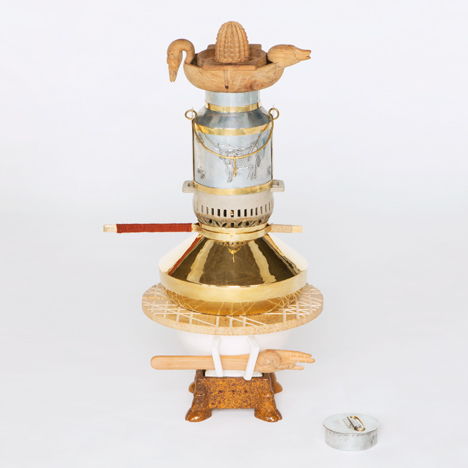
Exhibited at Ventura Lambrate in Milan during the city's design week, the Cheese Maker was designed by Studio Makkink & Bey to incorporate stacking sections created by different artisanal groups in Jaipur.
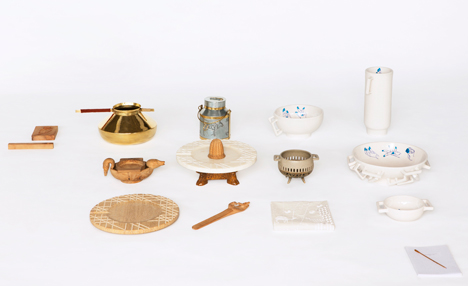
The Cheese Maker was created for Imperfect Design, an organisation that pairs Dutch designers and craftspeople in developing countries to create lifestyle products.
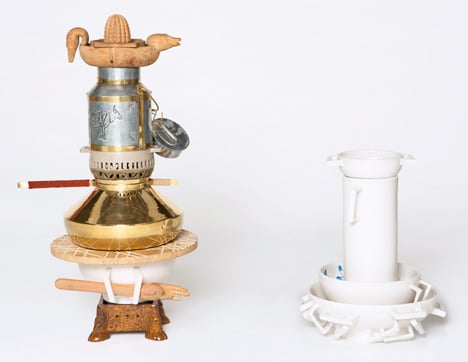
During the research phase for the project, Studio Makkink & Bey looked for common threads, processes and approaches to design in the Netherlands and India.
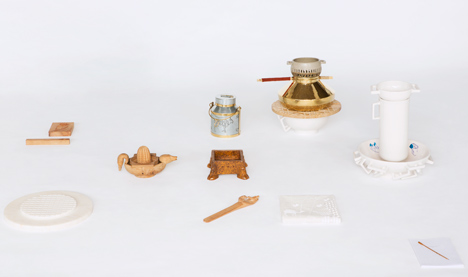
Both countries have a long history of cheese making and of craftsmanship, so these ideas provided the basis of the design.
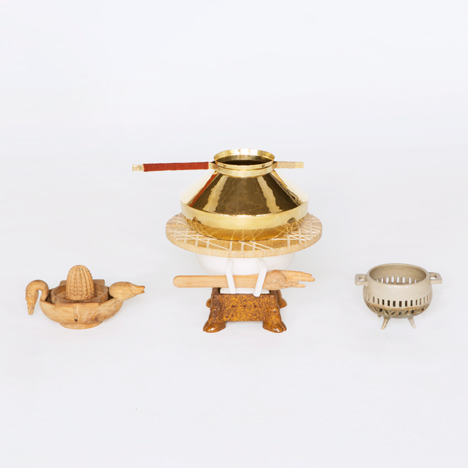
The tower shape was influenced by the stacking of goods and housing that is commonly seen in both of the densely populated countries.
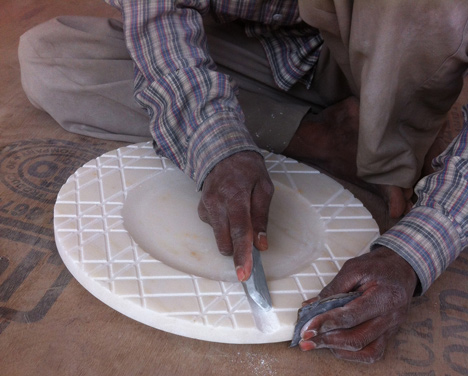
The stack consists of a juicer, a milk jug, a spoon, a colander, a pan, a cutting board, a bowl, a cheesecloth and a press.
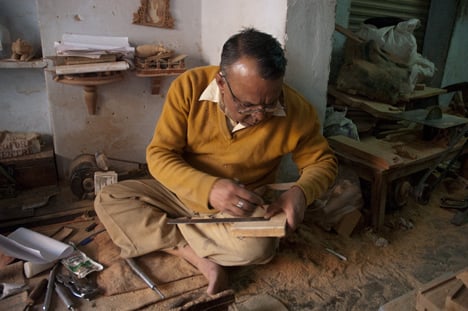
Each element was made using a different material from a list including wood, blue pottery, metal, copper, cotton, soapstone and marble – all produced or shaped by Indian artisans.
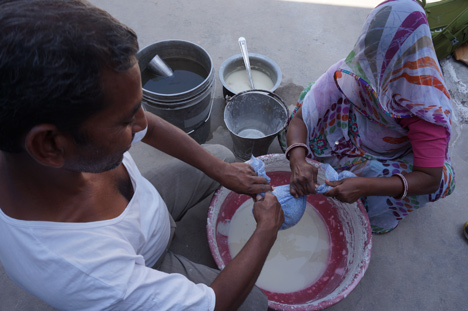
"Education, development and craft play a leading role in the work of Rianne Makkink and Jurgen Bey," said a statement from Imperfect Design. "These elements are also fully integrated in the process, the approach and the search for the right partners within this project."
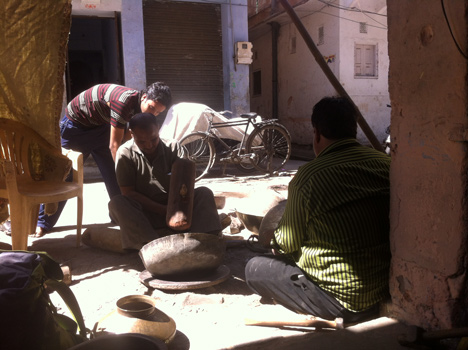
The collaboration with small local groups in Jaipur aims to encourage the continuation of craft skills and transfer of knowledge between generations.